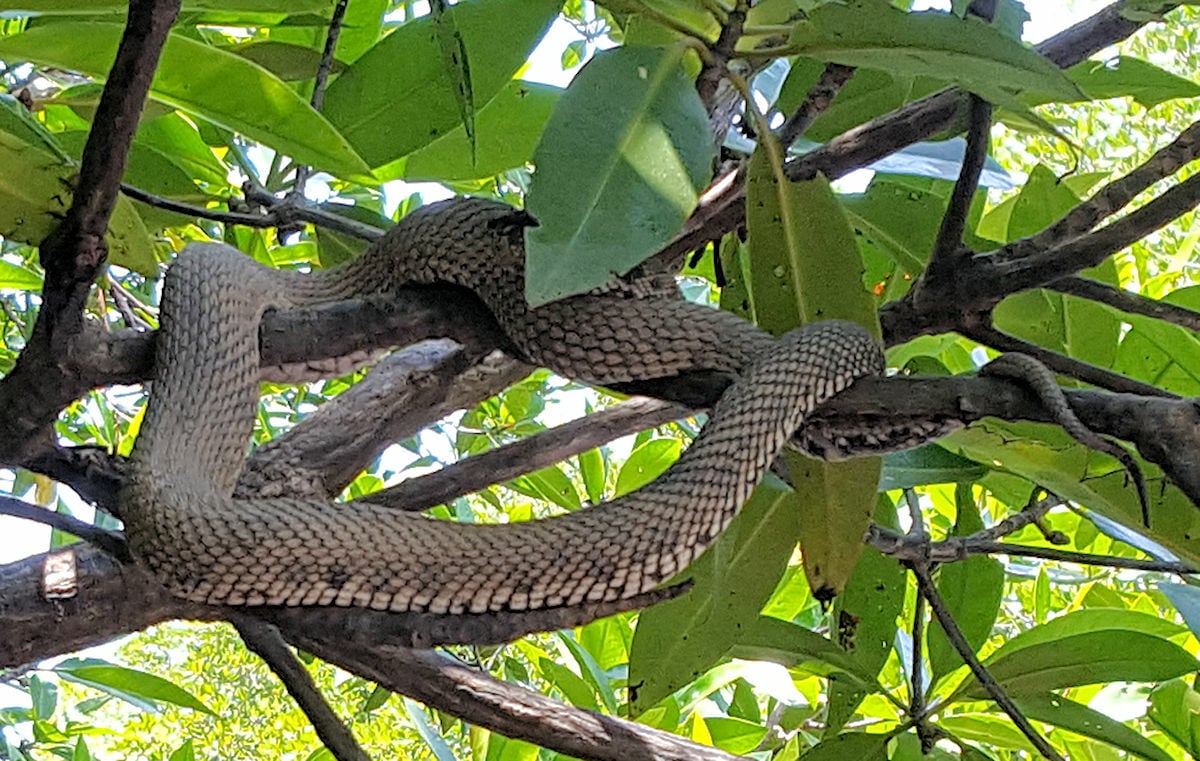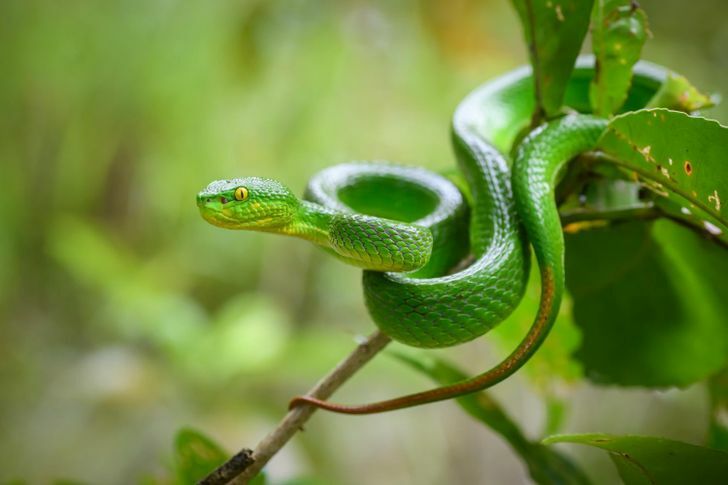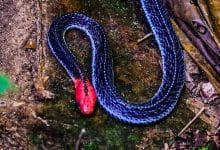Serpent surge: Thailand’s venomous vipers slither in flood season

Thailand’s deadly snake brigade is on the slide! Home to seven venomous species, these serpentine killers are a force to be reckoned with, especially during the treacherous flood season. With venom that packs a punch, sometimes fatal, these snakes are not to be trifled with.
Venom from these slithering assassins delivers a double whammy: muscle weakness and paralysis. It starts innocently enough with drooping eyelids, fools you into thinking you’re sleepy, and then, BAM! The next thing you know, you’re struggling for breath.
Cobra
In the world of treacherous reptiles, the cobra is king. These hissing fiends thrive in Thailand’s forests, farms, and sometimes even our urban jungles.
Their hoods, often adorned with spooky flower marks, are a sign they mean business. One bite can lead to severe paralysis and death if you’re not careful. And some species can even spit venom.
King cobra
Meet the world’s biggest killer snake: the king cobra, also known as Bonglara in southern Thailand. Stretching up to 6 metres, this snake is not one to mess with.
While generally cautious, they can rise to daunting heights and give you the scare of your life, especially if you stumble upon a protective female. Their venom is a ruthless neurotoxin, causing respiratory failure with terrifying swiftness.

Banded krait
Sporting striking black and yellow bands, the Banded Krait is a nocturnal nightmare. Found lurking near water, these snakes are relatively passive but will bite if disturbed. Their venom wreaks havoc on your nervous system, causing seizures and internal bleeding. Charming.
Malayan krait
The Malayan Krait, a smaller but no less lethal cousin to the Banded Krait, features dramatic black and white bands. Active mainly at night, its venom targets the nervous system. Despite its modest stature, it’s a heavy hitter in the venom world.
These serpents add insult to injury by wreaking havoc on your blood. Their venom transforms your bloodstream into a warzone, leading to internal bleeding and other gruesome symptoms.
Malayan pit viper
With a look as deadly as its bite, the Malayan Pit Viper is an ambush predator, blending seamlessly into its sandy surroundings. One strike from this snake, and you’re looking at severe haemorrhaging and tissue damage.
Russell’s viper
Noise and venom, Russell’s Viper has it all. Known for its thunderous hiss, this viper prowls dry plains and rocky crevices. Its venom disrupts blood clotting, leading to excruciating pain and widespread bleeding. This is one snake you don’t want to cross paths with.
Green pit viper
The Green Pit Viper, with its distinctive red-tipped tail, is an aggressive adversary. Found all over South and Southeast Asia, including several hotspots in Thailand, this snake’s venom causes immediate pain and swelling. Found lurking in wood piles and grassy patches, it’s always ready to strike.

Surviving bites
So, you’ve had an unfortunate encounter, what now? Stay calm. Identify the snake if you can and rush to medical help. Forget the tourniquets, they do more harm than good.
If you’ve been sprayed with venom, rinse it out with clean water pronto. Hospitals will run physical exams and blood tests, administering antivenom based on severity. Careful, though—antivenom can trigger allergic reactions. Other treatments might include surgery, fluid therapy, or even dialysis for kidney failure.
Beware, Thailand, the snakes are on the rise, especially with the incoming floods. Stay vigilant, stay safe, and remember one wrong move, and you could be their next victim.
Latest Thailand News
Follow The Thaiger on Google News:


























